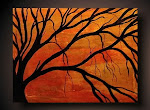Curiosity: In old Lusitania
Publicada por
Arith Härger
/ 10:44 PM /
For those of you who dont know where Lusitania is or was, i will help you with that:
Lusitania was the country where the Lusitanian people lived, in the Iberian peninsula in the continent of Europe, where today exists the modern countrys of Spain and Portugal.
The Portuguese people and some of the spanish people, are decendents from the Lusitans, often people think about the Lusitans, as Iberians or Celtiberians, but in truth, the Lusitanian people were Celts. The Celts start their expansion over the European territories something like 1200 B.C./B.C.E. and that was the year when they first arrived to the Iberian peninsula, 200 years before they went to Great Britain. There were a lot of Celtic tribes in Spain and Portugal, and each tribe settled in a place, one of those tribes of Celts, were the Lusitans, or the Lusitanian peoples. Probably their name wasn't that, because the Romans called them Lusus/Lusos, probably they had an other name, a Celtic one. These tribe had the biggest part of Central Portugal and they became the most powerful people in the Iberian peninsula. They were no longer a Celtic Tribe, now they were a nation. They conquered most of Portugal exept the North that belonged to their other Celtic brothers, and conquered a large territory of Spain. Today we know that their language was of germanic source, it was found in archaeological discoveries, that they wrote in the celtic language called Ogham and also in the Runic Alphabet, not with the runes we know today, but with the first symbols where the runes came from, called ur-runes.
We have all heard about the Druids, but before the Druid's time, the Lusitanian people had already a spiritual guide, elders in each Lusitanian tribe, called Endre, in plural, Endres. These men and probably women, were something between a shaman and a druid, they were teachers of philosophy, anatomy, spiritualism, science etc. and they knew how to work with the neolithic monuments such as Dolmens, henges, sacred mounds, menhirs etc.
So this is very important to know, because most people think that the Lusitanian people were just Iberians, but in fact they were Celts, and the Celtiberians were the mixture with other Celts from the Central Iberian peninsula, with the Iberian people that were the native folk from the Cost line of Spain to the East and Northeast.
Also a very curious thing, when the Celts arrived in Irland, they have not passed through england to get there, they came by sea from the Iberian peninsula, some Celts, some Iberians and many Lusitans. So many people in Irland, have the same ancestry as the Portuguese people.
If you need more information or if you want to check my works, take a look at my Facebook page and make a like at --> www.facebook.com/ArithHarger
em 10:44 PM | Keywords: Ancestors, Celtiberian, Celtic, celts, Druids, Endre, European History, Iberians, lusitania, lusitanian, Lusitanos, Ogham, Other Pagan Celebrations, Shamans





2 comentários:
The most common denomination is Lusitan Lus from a Celtic form Lugus, others claim Lucis, an ancient mystic people that presumably were called the children of light, (they are mentioned in the Avienus Ora Maritima). Since this is actually a word adopted by the Greeks, Lusus stand, in their perspective for frenzy or rage personified,"tan" means tribe or "tain", as in Chieftain.
Lusitans, where in fact many different clans that unite in a sole bigger tribe, although it seems the separation was more for political reasons, since they all seem to be the same people.
The original name as a nation was Belitanians,in Portuguese phonetics the "e" actually sounds "ea" therefore Beal-i-tanos or Lus-i-tanos, curiouslly very close to Beal-taine, or in English Bel-tane or in the Portuguese written form Bel-i-tanos.
Thank you for your time Arith, be well.
Post a Comment